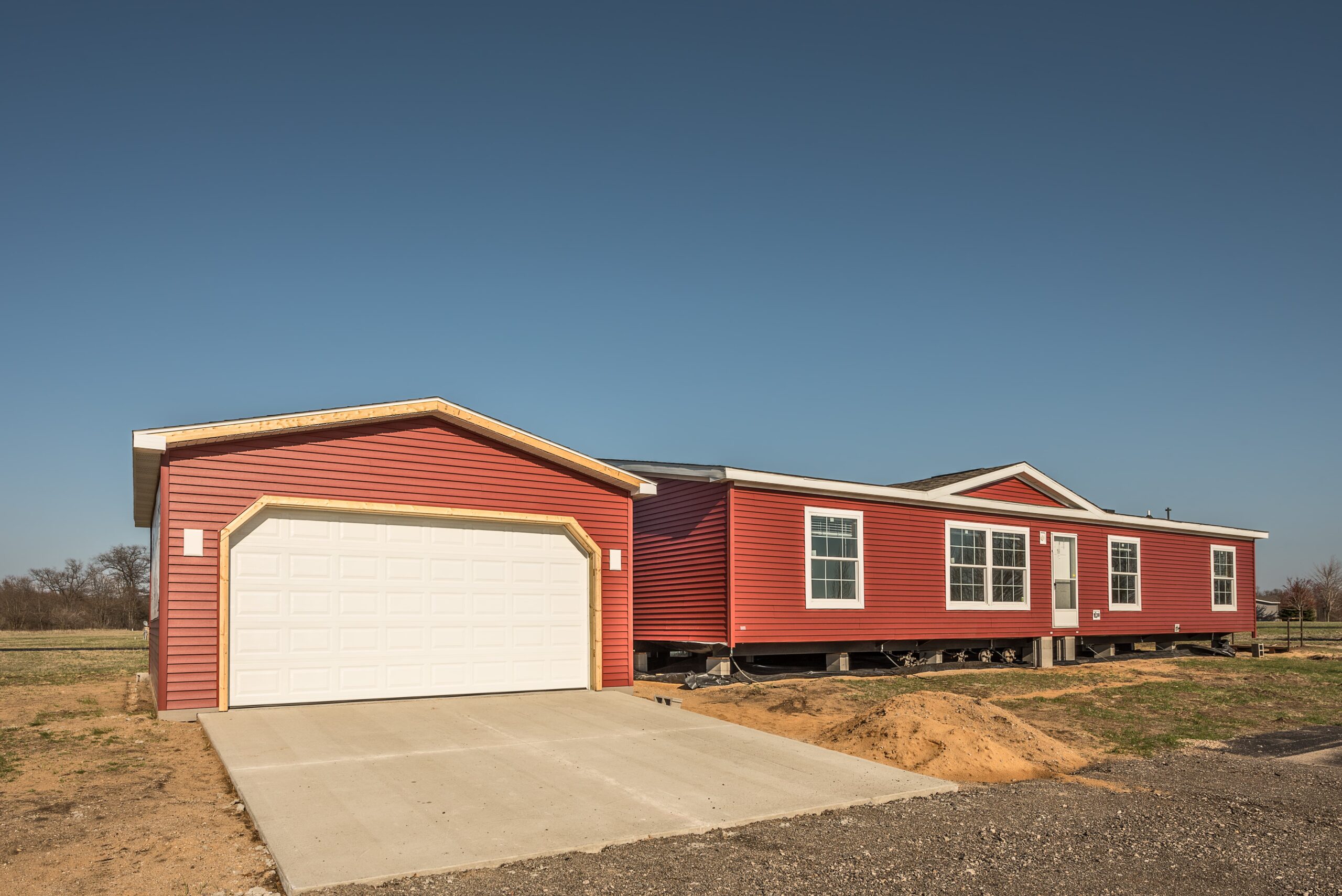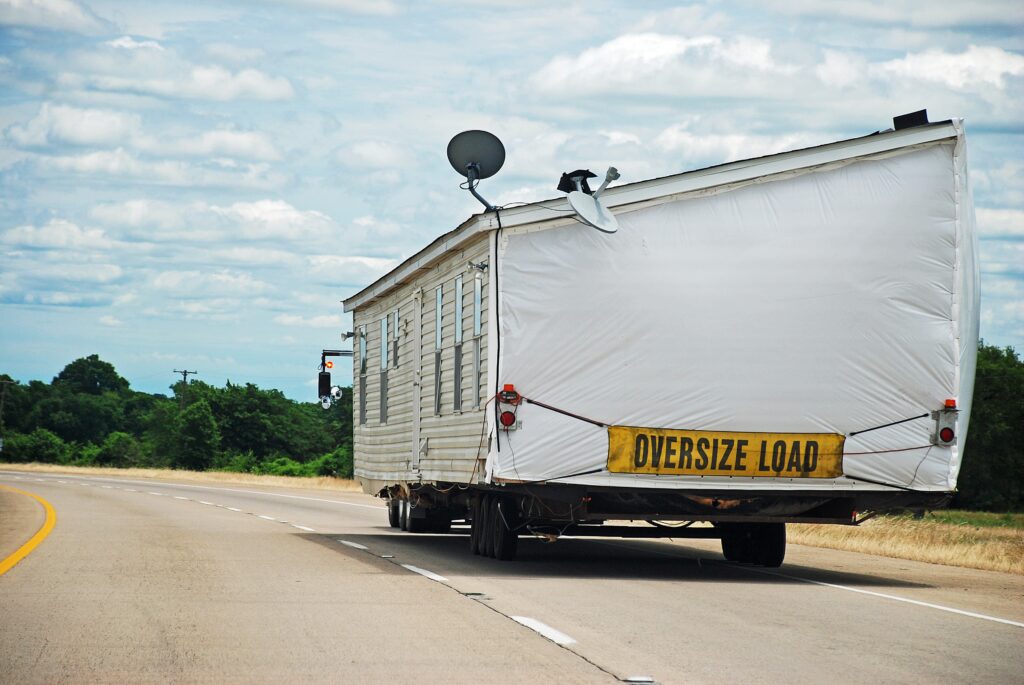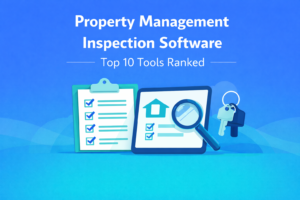
Manufactured homes are becoming increasingly popular as affordable and eco-friendly living spaces. Modern manufactured homes are packed with advanced features and customizable options and are environmentally friendly.
The manufactured home industry offers some exciting options if you’re looking for an innovative and eco-friendly investment. In this detailed blog, we’ll learn about manufactured homes.
Understanding Manufactured Homes
If you’re used to traditional homes, you know that the building process involves finding a location and constructing the house on that spot. However, if you’ve heard the term “manufactured home,” it’s the opposite.
Manufactured homes are built in a factory and then moved to your chosen location. They don’t typically have a basement like traditional homes. It is worth mentioning that manufactured and mobile homes are similar but also different.
It can be confusing, but let’s break it down.
Both types are regulated by the U.S. Department of Housing and Urban Development (HUD). However, a home built before June 15, 1976, is considered a mobile home. Anything built after that is classified as a manufactured home.
Manufactured homes are built on a chassis and can be transported using a trailer hitch and axles. Since they can be moved, they’re considered vehicles for zoning and tax purposes.
Modern manufactured homes look nothing like older, rectangular, metallic trailers. They’re sturdy, can blend in with the environment, and can be up to 3,000 square feet, double or triple the size of the older ones. Since mobile homes are older, they’re generally less expensive than newer manufactured homes.
Key differences between manufactured homes and traditional site-built homes

Here are some key differences between manufactured homes and traditional site-built homes:
Construction Process
Manufactured homes are constructed in factories, often assembly-line style, with standardized practices and materials. Traditional homes are built on-site, with materials delivered and assembled by contractors following architectural plans.
Building Codes and Regulations
Manufactured homes in the US must comply with federal safety and construction standards set by the Department of Housing and Urban Development (HUD), which are usually less strict than those for traditional site-built homes. Site-built homes must adhere to local building codes and regulations, which can vary significantly depending on the location and jurisdiction.
Transportation and Installation
Manufactured homes are transported in sections and assembled on a permanent foundation on-site. They can be relocated if needed. Site-built homes are constructed on-site, eliminating transportation needs, and are built on a permanent foundation.
Customization and Design Options
Manufactured homes usually offer fewer customization options than site-built homes, with buyers picking from pre-set floor plans and finishes. Site-built homes provide greater design flexibility, letting homeowners collaborate with architects and builders to tailor a custom home to their preferences.
Quality and Durability
Manufactured homes meet standards for strength and safety, but some believe they’re less durable than on-site built homes due to lighter materials and unique building methods. Site-built homes are often seen as more durable and higher quality, typically built with heavier materials and undergoing stricter inspections during construction.
The Advantage of Manufactured Homes
Manufactured homes are a smart choice for those who want a new home that doesn’t break the bank. These homes are affordable, costing about half the price of a traditional new home. They’re also quick to set up, so you don’t have to wait long before moving in.
You don’t need to worry if anything goes wrong since the parts are standardized, making fixes easy, and there’s even a warranty. These homes are also perfect for small families who want to save money before getting a traditional home. You can start small and expand as your budget allows.
Another benefit of manufactured homes is that they’re environmentally friendly. They’re becoming more popular as people switch from their old houses to adopt a more eco-friendly lifestyle. Plus, they help save on energy bills, which can be a significant expense.
You can also customize your manufactured home to suit your needs and preferences. You can choose the size, layout, and number of bedrooms and even add porches and decks. There’s no need to worry about your home looking like everyone else’s. You can have it all with a manufactured home!
Cons of Manufactured Homes
If you’re thinking about buying a manufactured home, there are some things you should know. For one, manufactured homes don’t usually increase in value like traditional homes, so you might not make a big profit if you sell them later.
Also, getting a loan for a manufactured home can be tough, especially if it’s not on a foundation. You might end up paying higher interest rates with a personal property loan.
You should also remember that manufactured homes lose value over time and may not be the best choice if you move soon. While you can customize them a bit, making them your own or giving them a facelift later can be harder.

Investing in Manufactured Homes
Thinking about getting a manufactured home and wondering if it’s a smart buy? Well, when they’re built well, manufactured homes rock! They’re quality-packed and can increase in value like regular houses, but it happens slowly.
What plays a significant role in their value? Where they’re located and the land they sit on. If the steep price tag of traditional homes concerns you, a manufactured home is a refreshingly affordable alternative.
With careful selection, your manufactured home can appreciate over time and be a significant asset in your financial portfolio. This appreciation can help you accumulate considerable wealth in the long term, making it a wise investment.
Manufactured Homes Costing
These homes typically have a lower price point than traditional homes, offering a cost-effective housing solution. HomeAdvisor estimates their cost to be between $100 and $200 per square foot, whereas a standard new-built home averages around $150 per square foot, with potential costs reaching up to $400 depending on location.
When determining the total cost of a manufactured home, several factors should be taken into consideration:
Land Ownership: Will you purchase the land where the home will be placed? This additional expense can vary significantly, ranging from thousands to tens of thousands of dollars. Alternatively, some individuals lease a space in a manufactured home park.
Upgrades and Features: If you desire premium upgrades and luxurious features, be prepared to incur additional costs. Just like in traditional homes, enhancements such as hardwood flooring or granite countertops come with a price tag.
Permanent Placement: Placing your manufactured home on a foundation transforms it into a modular home subject to standard building codes. While this enhances permanence and stability, it can also escalate overall costs.
In essence, manufactured homes offer affordability, land ownership, desired upgrades, and permanence can influence the final cost.
Final Words
A manufactured home could be a great option if you are low on budget. You can customize it to your liking and enjoy extra space without breaking the bank. However, it’s worth noting that they still carry some old-school trailer-home reputation and don’t appreciate value like traditional homes.
So, if you’re hoping to make a quick profit, this might not be the best choice. It’s also worth mentioning that financing for these homes can be challenging to obtain. Researching the local market before investing in manufactured homes is recommended to gain a better understanding of the current situation.
Table of Contents
Stay Updated
Subscribe to get the latest news, industry trends, blog posts, and updates...




